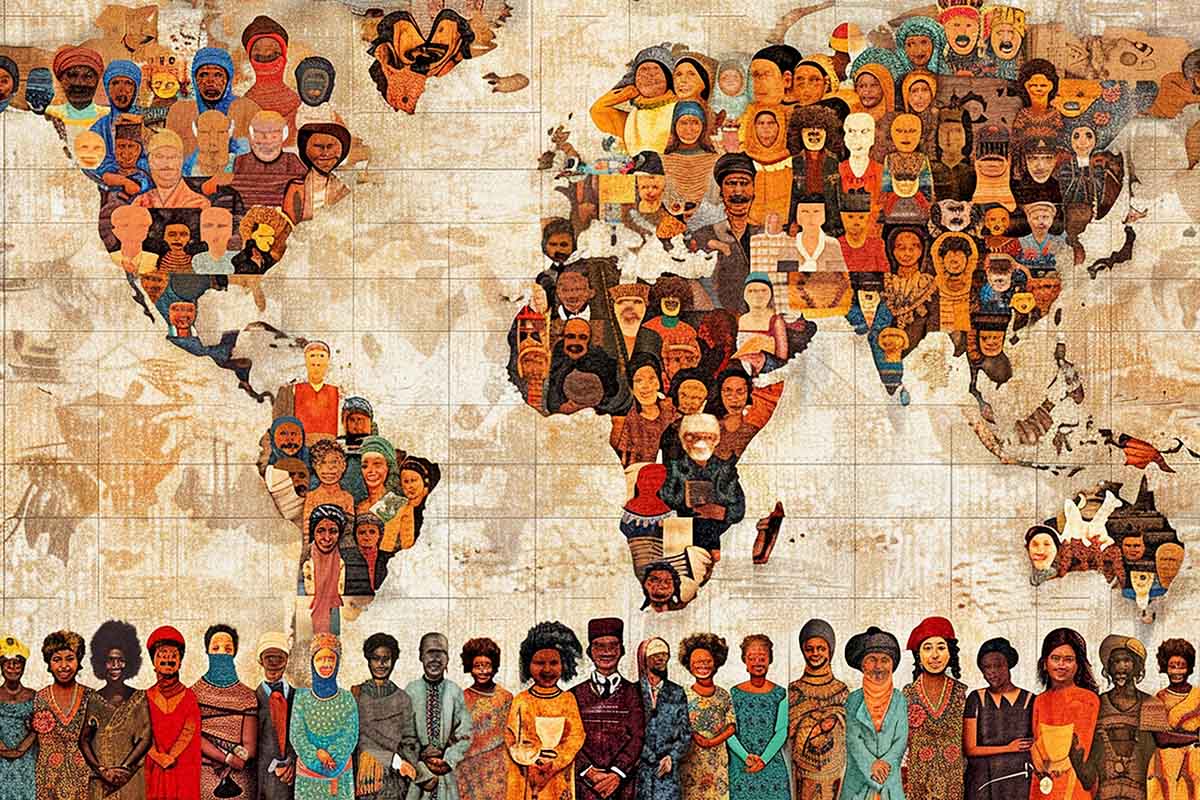Analyzing Africa’s Brain Drain
Challenges and Consequences
Africa’s development has had a huge setback for decades in comparison to other continents. Aside common factors such as poor leadership choices, the lag in growth is also partly due to the continent’s low human and economic capital development, particularly, the exodus of Skilled professionals from the continent. In a period of 3 decades, from 1990 to 2020, the total number of African migrants living outside of the region, including skilled professionals, more than doubled to about 20 million, with the growth in Europe at the highest.
Most of the African-born migrants living outside the region were residing in Europe (11 million), Asia (nearly 5 million), and North America (around 3 million). In 2020, Egypt, Morocco, South Sudan, Sudan, and Algeria were the top emigrant African countries. The African union estimated that about 70,000 skilled professionals emigrate from Africa every year, making it one of the highest immigration rates of skilled professionals in the world.
According to the estimates of the United Nations Commission for Trade and Development, each migrating African professional represents a loss of $184,000.00 to Africa. Young Africans will continue to migrate to Europe, America, Asia, and Oceania in search of better economic opportunities, due to limited opportunities on the continent. Security issues, corruption, rippling effects of poor governance such as inadequate policy incentives, and unaccountability are additional push factors for the high migration rate from Africa, contributing to a massive brain drain.
Skilled emigration from Africa, the root cause of brain drain will likely continue into the near future, as long as the root causes remain unaddressed. It will continue to take its toll on the continent, further decreasing the already dwindling human capital, thus affecting critical sectors in the economies of many African countries, and negatively impacting the capacity of the countries for research, innovation, production and growth.
The pervasiveness of the brain drain is particularly evident in the health sector; Professor Femi Akinwunmi, the President of African Development Bank in his opening remarks at the “Development without Borders” Community of Practice dialogue held on 1st and 2nd December 2022, referenced the World Health Organisation records showing that 26 African countries for which there is data available, from 2012 to 2016, the ratio of physicians to people is 0.45 to 1000. Ironically, records show that 13,584 African-trained International Medical graduates practice in the US alone. This statistic is for 2015, nine years on, where does the figure stand now? A report by Mo Ibrahim foundation Assessment in 2018, titled “Brain Drain a bane for Africa’s potential” revealed that 86% of all African-educated physicians working in the United States were trained in Ghana, Egypt, Nigeria and South Africa.




















Your point of view caught my eye and was very interesting. Thanks. I have a question for you.
I don’t think the title of your article matches the content lol. Just kidding, mainly because I had some doubts after reading the article.
Your point of view caught my eye and was very interesting. Thanks. I have a question for you.
Thank you for your sharing. I am worried that I lack creative ideas. It is your article that makes me full of hope. Thank you. But, I have a question, can you help me?
I don’t think the title of your article matches the content lol. Just kidding, mainly because I had some doubts after reading the article.
Thanks for sharing. I read many of your blog posts, cool, your blog is very good.
I don’t think the title of your article matches the content lol. Just kidding, mainly because I had some doubts after reading the article. https://accounts.binance.com/ro/register?ref=V3MG69RO
I don’t think the title of your article matches the content lol. Just kidding, mainly because I had some doubts after reading the article.
I don’t think the title of your article matches the content lol. Just kidding, mainly because I had some doubts after reading the article.
Your point of view caught my eye and was very interesting. Thanks. I have a question for you.
Your article helped me a lot, is there any more related content? Thanks! https://accounts.binance.com/zh-TC/register?ref=VDVEQ78S
Your point of view caught my eye and was very interesting. Thanks. I have a question for you.
I don’t think the title of your article matches the content lol. Just kidding, mainly because I had some doubts after reading the article.
Your point of view caught my eye and was very interesting. Thanks. I have a question for you.
Your article helped me a lot, is there any more related content? Thanks!
I don’t think the title of your article matches the content lol. Just kidding, mainly because I had some doubts after reading the article.
Can you be more specific about the content of your article? After reading it, I still have some doubts. Hope you can help me.
Your point of view caught my eye and was very interesting. Thanks. I have a question for you.
Thanks for sharing. I read many of your blog posts, cool, your blog is very good.
Can you be more specific about the content of your article? After reading it, I still have some doubts. Hope you can help me.
Your point of view caught my eye and was very interesting. Thanks. I have a question for you.
I don’t think the title of your article matches the content lol. Just kidding, mainly because I had some doubts after reading the article.
Thank you for your sharing. I am worried that I lack creative ideas. It is your article that makes me full of hope. Thank you. But, I have a question, can you help me?
Your point of view caught my eye and was very interesting. Thanks. I have a question for you. https://www.binance.com/en-IN/register?ref=UM6SMJM3
Your point of view caught my eye and was very interesting. Thanks. I have a question for you. https://accounts.binance.com/register?ref=P9L9FQKY
I don’t think the title of your article matches the content lol. Just kidding, mainly because I had some doubts after reading the article.
I don’t think the title of your article matches the content lol. Just kidding, mainly because I had some doubts after reading the article. https://accounts.binance.com/da-DK/register?ref=V2H9AFPY
Your point of view caught my eye and was very interesting. Thanks. I have a question for you.
Your article helped me a lot, is there any more related content? Thanks!
Thanks for sharing. I read many of your blog posts, cool, your blog is very good.
Your point of view caught my eye and was very interesting. Thanks. I have a question for you.
Your point of view caught my eye and was very interesting. Thanks. I have a question for you.
Thank you for your sharing. I am worried that I lack creative ideas. It is your article that makes me full of hope. Thank you. But, I have a question, can you help me?
Your article helped me a lot, is there any more related content? Thanks!
Can you be more specific about the content of your article? After reading it, I still have some doubts. Hope you can help me.
Your point of view caught my eye and was very interesting. Thanks. I have a question for you.